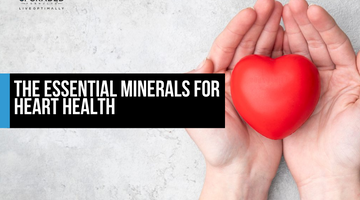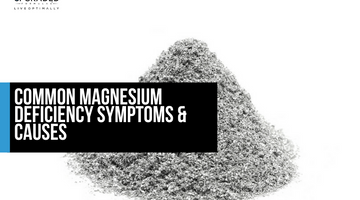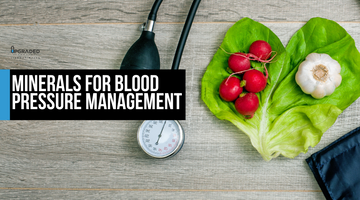potassium deficiency
Can Potassium Prevent Headaches?
Your head hurting? A lot of people go for magnesium supplements or muscle relaxants. But did you know potassium is a helpful mineral for headaches too? Potassium can help take away the tension and pain that comes with headaches.
What are the most common mineral deficiencies
We all want to feel good by eating right, moving our bodies, and taking the right vitamins. Still, there are basic minerals to know about. We should all look out for them in case we do not have enough in our bodies. There are three important minerals that many people do not get enough of. These minerals are magnesium, iodine, and zinc.
Can Potassium Help With High Blood Pressure?
Nearly half of adults in the U.S.—about 122.4 million people—live with high blood pressure, also called hypertension. This is when your top number in a blood pressure reading is 130 or higher, your bottom number is 80 or higher, or you take medicine for high blood pressure. High blood pressure is more common as people get older. About 23.4% of people age 18 to 39 have it. That number goes up to 52.5% for those age 40 to 59. For people 60 or older, it is 71.6%. Men get high blood pressure a little more than women do, with rates of 50.8% for men and 44.6% for women.
Always Thirsty? You Might Be Missing Minerals!
Have you ever been in a state where you are constantly drinking fluids, whether it be water, juice, milk, and nothing seems to quench your thirst? While constant thirst can most definitely be a sign of a serious condition, it can also be indicative of requiring extra minerals- whether it be a specific one or a blend of trace minerals. Today, we thought we'd explore that and help you understand the potential causes of your unrelenting thirst!
Can A Potassium Deficiency Make You Susceptible To A Stroke?
Imagine if eating a banana could help keep you from having a stroke. Sounds crazy, right? But it's not far from the truth. Strokes are a big deal in the U.S., affecting about 7.6 million adults. That's a lot of people! And here's the kicker: many of us need more potassium, a super important mineral that our bodies need. Most Americans only get about half the potassium they should each day. Why does this matter? Well, potassium does a ton of cool stuff in our bodies, from helping our muscles work to keeping our hearts healthy. But the most exciting news? Recent studies show that getting enough potassium helps prevent strokes.
Can Low Potassium Cause Dry Skin?
Have you ever wondered why your skin feels dry and itchy, even when you drink tons of water? Low potassium levels, an essential electrolyte that helps regulate PH levels and supports amino acids in your skin, might be your missing secret ingredient. This fantastic mineral doesn't just quench your thirst – it helps your body’s cells hold onto water, keeping you hydrated from the inside out. But potassium does way more than that. It's like a superhero for your body, helping your nerves, muscles, heart, and even your bones work better.
Can Potassium Support Kidney Health?
Did you know our kidneys do much more than you might think? They're not just filters for your blood - they're like the body's superhero team, keeping everything in balance. Healthy kidneys are always on the job, from controlling your blood pressure and phosphate levels to ensuring your muscles work right. But here's the thing: sometimes our kidneys need a little help to stay healthy, especially from a nephrology perspective.
Why Minerals Are essential For Heart Health?
For many individuals, heart health is often oversimplified to the mantra of "exercise more, eat less cholesterol, and limit your salt intake." While these pieces of advice do hold some value, they barely scratch the surface of the broader and often under-explored intricacies of heart health. More importantly, this standard advice usually neglects one critical aspect of overall cardiovascular health: the central role of essential nutrients, particularly minerals like vitamin E, in maintaining a healthy heart.
Mineral Deficiencies: Causes and Solutions
Mineral deficiencies can have a significant impact on our health and well-being. These deficiencies occur when our bodies lack adequate levels of essential minerals vital for adequately functioning cells, tissues, and organs. Understanding the causes of mineral deficiencies and finding practical solutions is crucial for maintaining optimal health.
Are Your Muscle Cramps A Potassium Deficiency?
Have you ever been jolted awake by an unexpected and painful cramp in your leg, your toes curling involuntarily, or your hands seizing up without warning? Nighttime muscle cramps can transform slumber into a battleground, disrupting your much-needed rest with sharp, intense discomfort.
Magnesium Deficiency Symptoms & Causes
While calcium and vitamin deficiencies typically command the spotlight in discussions surrounding nutritional deficiencies, Magnesium deficiency - known medically as hypomagnesemia - is a silent crippler to your body's health. Alarmingly, over half the population (around 57%) is grappling with this essential dietary requirement inadequacy. In older people, magnesium deficiency may increase the risk of osteoporosis and bone fractures.
Essential Minerals for Effective Blood Pressure Management
In today's fast-paced world, maintaining optimal health is more important than ever. One essential aspect of our well-being is blood pressure, which plays a vital role in cardiovascular health and overall disease prevention. Many factors contribute to maintaining healthy blood pressure, and our diet is a crucial part of this equation.













